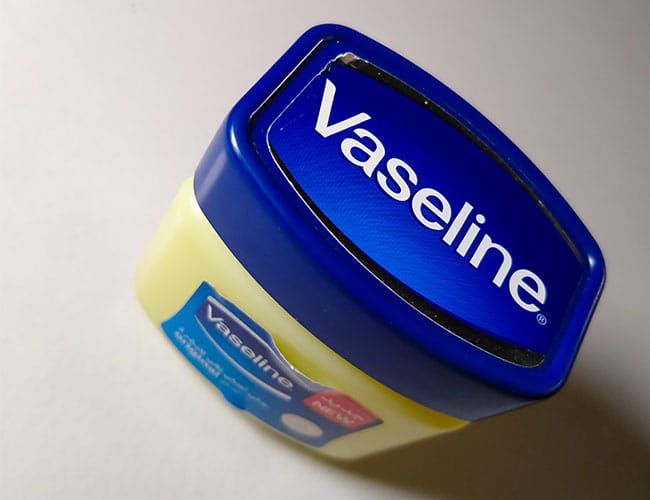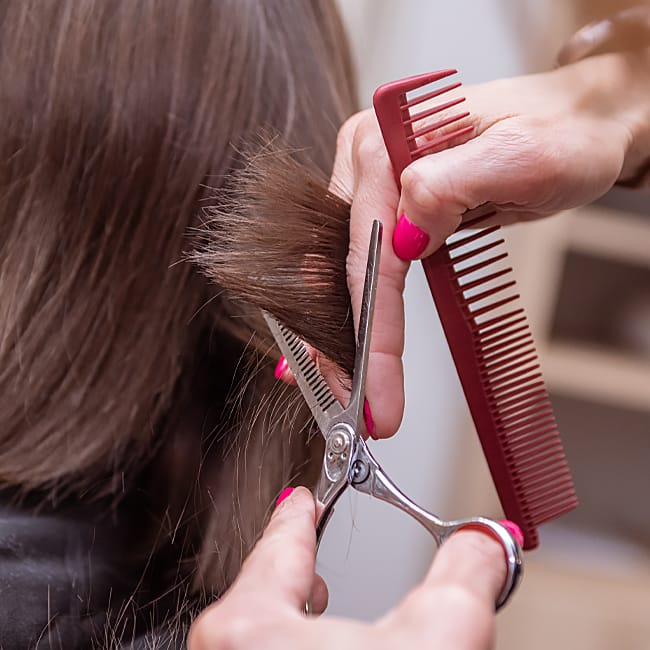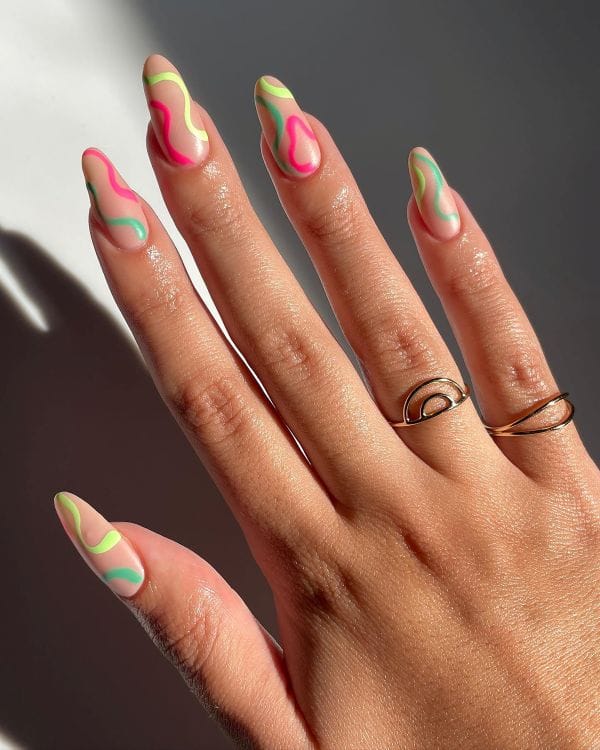Aside from the dance challenges, easy recipes, and life-changing hacks on TikTok, you’d be surprised that the app is also full of beauty content. From makeup tutorials to hairstyle inspo, your #ForYouPage can pretty much have it all. In fact, one trend that seems to be getting everyone’s attention lately is “slugging,” a unique skincare method that involves using large amounts of petroleum jelly as a moisturizer for the face. Check out the video below.
https://www.tiktok.com/@edwardzo/video/7056911603765185838
So, how exactly does this trend work and is it an effective skincare method for anti-aging? We asked Dr. Elaine F. Kung, MD, of Future Bright Dermatology and Dr. Deanne Mraz Robinson, MD, FAAD, president and co-founder of Modern Dermatology to find out. Keep reading to know more.
What You Need To Know About Slugging
According to Dr. Kung, “The idea of layering a thick occlusive emollient, containing ingredients like petrolatum, lanolin, shea butter, beeswax, as the last step of a night-time routine is nothing new. This practice has been spotlighted and branded by the catching term ‘slugging’ on TikTok. In fact, purveyors of K-beauty have been pushing this practice of slugging in their 10-step beauty routines for years!”
She adds, “Many people have been unwittingly slugging for years with the trend for vegan or organic skin care. [Several] people have been using toners, serums, or lotions with plant-derived oils and then applying a moisturizing cream thinking those other steps in their skin care routine are not moisturizing enough.”
Dr. Kung explains that by applying products such as Vaseline, Aquaphor, Cerave, or Cetaphil Healing Ointments on your face, you’re helping your skin “reduce transepidermal water loss.”
She says that improving and repairing the skin barrier is most helpful for people who:
- Are suffering with atopic dermatitis / eczema
- Have irritable skin
- Have dry and chapped skin
- Are living in cold and dry climates
“Because the skin barrier is protected overnight, people wake up with softer and glowing skin. Of course, if the skin is moisturized, it helps soften the appearance of fine lines and wrinkles.”
@dr.mamina FYI: Even though this doesn’t clog pores, it can exacerbate acne if you are acne-prone. Otherwise great for other skin types! #dermatologist #skincare #learnontiktok #slugging #moisturize
Dr. Robinson confirms this and notes that “slugging is a practice that helps to seal in whatever actives were applied underneath.” She also mentions, “Applying an occlusive prevents transepidermal water loss, locking hydration and skincare products applied underneath for maximum benefit. Hydrated skin always looks younger and rejuvenated. It is reparative and promotes overall skin healing.”
However, Dr. Kung emphasizes that slugging is not for everyone. “People who have the following should not be slugging because trapping oils in the skin will only worsen their underlying problems.”
- Oily skin
- Acne-prone skin
- Clogged pores, white heads (milia), blackheads
- Seborrheic dermatitis
Dr. Robinson agrees, and clarifies that “the practice can be helpful for aging skin as long as you are not acne-prone.” She warns, “Slugging [on top] of a retinol can cause irritation. Instead you could experiment with slugging [over] a topical antioxidant, peptides, ceramides, and humectants like hyaluronic acid.”
So if you find yourself with any of the conditions previously mentioned, do not layer oils on your face and seal them with petrolatum, shea butter, and beeswax. That’s a big mistake!


Tips To Follow If You Want Younger-Looking Skin
Know your skin type and read the labels.
Dr. Kung's main advice is to "really know your skin and read the ingredient labels of your products." She tells us, "If you have irritable skin, don't layer AHA, BHA, retinol products, and then seal it with petrolatum. If you have oily skin, don't layer jojoba oil and moringa oil, and then seal it with shea butter. But if you have eczema, then yes, [by all means], moisturize!"
Exfoliate regularly.
"As we age, the rate at which we shed and create new, healthy skin cells slows down. Retinols and AHAs are a great way to speed up that timeline to keep your complexion glowing," shares Dr. Robinson.
Protect your skin.
According to Dr. Robinson, "It's never too late to start taking better care of your skin in the sun. Use a mineral SPF 30+ daily and grab a hat and sunglasses for long stints outdoors. Skin cancer and the sun-induced signs of aging are based on cumulative exposure overtime, so it's never too late! Add in a topical antioxidant in the morning for further protection from UV damage and environmental toxins."
Never skip your skincare routine.
Lastly, Dr. Robinson's tip is to "keep consistent with your skincare routine and your lifestyle choices." She concludes, "Stay hydrated and eat [foods that have] skin-friendly antioxidants and nutrients. Leverage in-office treatments to reverse damage and boost results. At home, maintain with medical-grade skincare!"


























